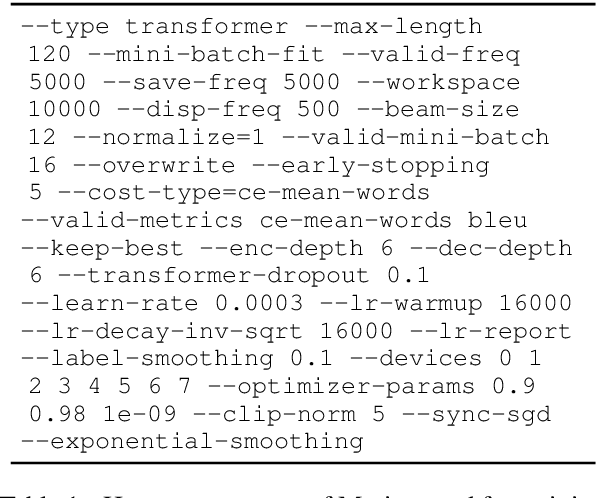Synthesizing Monolingual Data for Neural Machine Translation
Paper and Code
Jan 29, 2021



In neural machine translation (NMT), monolingual data in the target language are usually exploited through a method so-called "back-translation" to synthesize additional training parallel data. The synthetic data have been shown helpful to train better NMT, especially for low-resource language pairs and domains. Nonetheless, large monolingual data in the target domains or languages are not always available to generate large synthetic parallel data. In this work, we propose a new method to generate large synthetic parallel data leveraging very small monolingual data in a specific domain. We fine-tune a pre-trained GPT-2 model on such small in-domain monolingual data and use the resulting model to generate a large amount of synthetic in-domain monolingual data. Then, we perform back-translation, or forward translation, to generate synthetic in-domain parallel data. Our preliminary experiments on three language pairs and five domains show the effectiveness of our method to generate fully synthetic but useful in-domain parallel data for improving NMT in all configurations. We also show promising results in extreme adaptation for personalized NMT.
 Add to Chrome
Add to Chrome Add to Firefox
Add to Firefox Add to Edge
Add to Edge